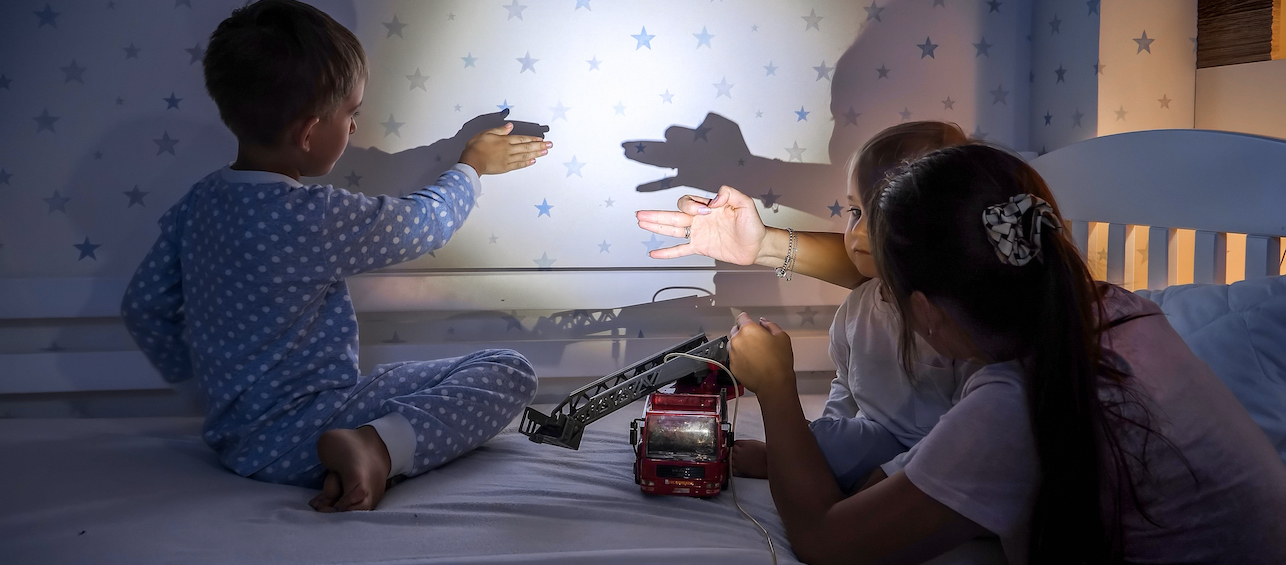Your child has been dealing with some big emotions and feelings, and you’ve realized it could be helpful for them to talk with a professional mental health provider. Good for you—that’s a great first step in getting your family the support you need to help deal with the stresses that are all around us in today’s world.
So, what will that first appointment be like? It’s natural to have questions about what to expect at your child’s first appointment with a mental health provider. As someone who provides therapy services at Cincinnati Children’s, I’d like to share with you the following things I think are helpful for families to know before your first visit.
5 Things to Know Before Your Child’s First Mental Health Appointment
1. Feeling nervous is normal.
This is how a lot of people feel when they first meet me—both parents and their children. And that’s totally OK! Part of my job is to help you and your child understand what to expect when you’re here, introduce you to what therapy is, and help you become comfortable with me and the therapy process. That’s a lot of what the first visit is about.
I like to bring parents and kids together in my office and start off with all of us taking a deep breath. I do the same if it’s a telehealth appointment. Think of it as a “meet and greet.”
Depending on the age of the child, the parent might stay for all or just part of the visit. Feel free to ask the mental health provider you meet with any questions you have about their process.
2. The first appointment will be a lot of information gathering.
Your child’s first visit with a mental health provider is called a diagnostic assessment or mental health intake appointment. That means we’re gathering information about what brings you to us. I’ll ask a lot of questions and take notes either on paper or on my computer.
After that, at the second appointment and beyond, our visits will be more like a conversation and less question-and-answer.
3. You can help by preparing your child ahead of time.
- Tell them about the visit using age-appropriate language. Let them know they’ll be seeing a mental health provider. Here’s some wording you can adapt for your child’s age: “We’re going to talk to a therapist about how you’re feeling, and how you’re thinking and behaving. We’ll talk about ways to make life better for you. The therapist might give me some tips and tricks about how I can best support you.”
- Using the term “therapist” or “counselor” is fine. Mental health providers have a lot of different titles, but their goal is the same: to provide mental health support in times of need.
- Normalize it for your child. Talk about a mental health visit like you would talk about going to any other doctor office visit.
- Emphasize that going to mental health counseling is a safe place to get support. Stress that it’s not a punishment, and that there’s nothing wrong with your child. I like to put it this way when I talk to kids and teens: “There’s nothing bad or broken about you. You’re a normal human being. All humans have big thoughts and big feelings sometimes. And when those big thoughts and big feelings get in the way of living your life, or feeling happy, or your life goals, talking to a therapist can be a great way to get some support.”
- Toys, games or art might be involved. Let your child know that mental health providers often use things like toys, games, art, books and music. I might ask them to bring something with them to the next appointment, for example their sketchpad if they’re into drawing anime, or their favorite Paw Patrol figurine if that’s one of their current interests.
- Your child has choices in this process. It might help to tell your child that their healthcare providers are all part of a team, and your child is the team leader. As therapists, we can’t make someone say or do anything they don’t want to say or do.
4. For mental health treatment to go through insurance, your child has to have an official diagnosis.
Insurance companies require a medical diagnosis for covering mental health treatment. Your child might come to the first appointment with a diagnosis already, such as ADHD, depression, anxiety, a mood disorder, or any of a large number of other mental health diagnoses. If not, part of that first appointment involves identifying what’s going on for your child and determining if your child qualifies for a mental health diagnosis.
At the end of the first visit, I’ll talk with you about making a diagnosis.
5. Consistent therapy produces the best results and most progress.
Research shows a connection between regular therapy sessions and positive outcomes for patients. This can be especially important early on, when the therapist is building a relationship with your child and beginning to get a feel for how they can best support your child.
At the end of the first visit, we’ll talk about recommended timing for future visits and how to get those scheduled.
At your child’s future appointments, I’ll work on building our relationship and helping them feel more comfortable. We’ll practice talking back and forth, and then we might do activities to teach them about feelings, or work on techniques to help them learn coping skills or how to problem-solve.
As a therapist, one of my goals is to help make that first appointment as low-stress as possible for both you and your child. I hope this information helps give you a better idea of what to expect.
Further Reading
What to Expect at Your First Appointment with Behavioral Medicine and Clinical Psychology
What to Expect When Seeking Care with Cincinnati Children’s Psychiatry
The Psychiatric Intake Response Center (PIRC) is the admission and evaluation center for all psychiatric services at Cincinnati Children’s. If you have mental health questions about your child, contact PIRC at 513-636-4124 or psychiatryresponse@cchmc.org. PIRC is staffed 24 hours a day, seven days a week, year-round.





